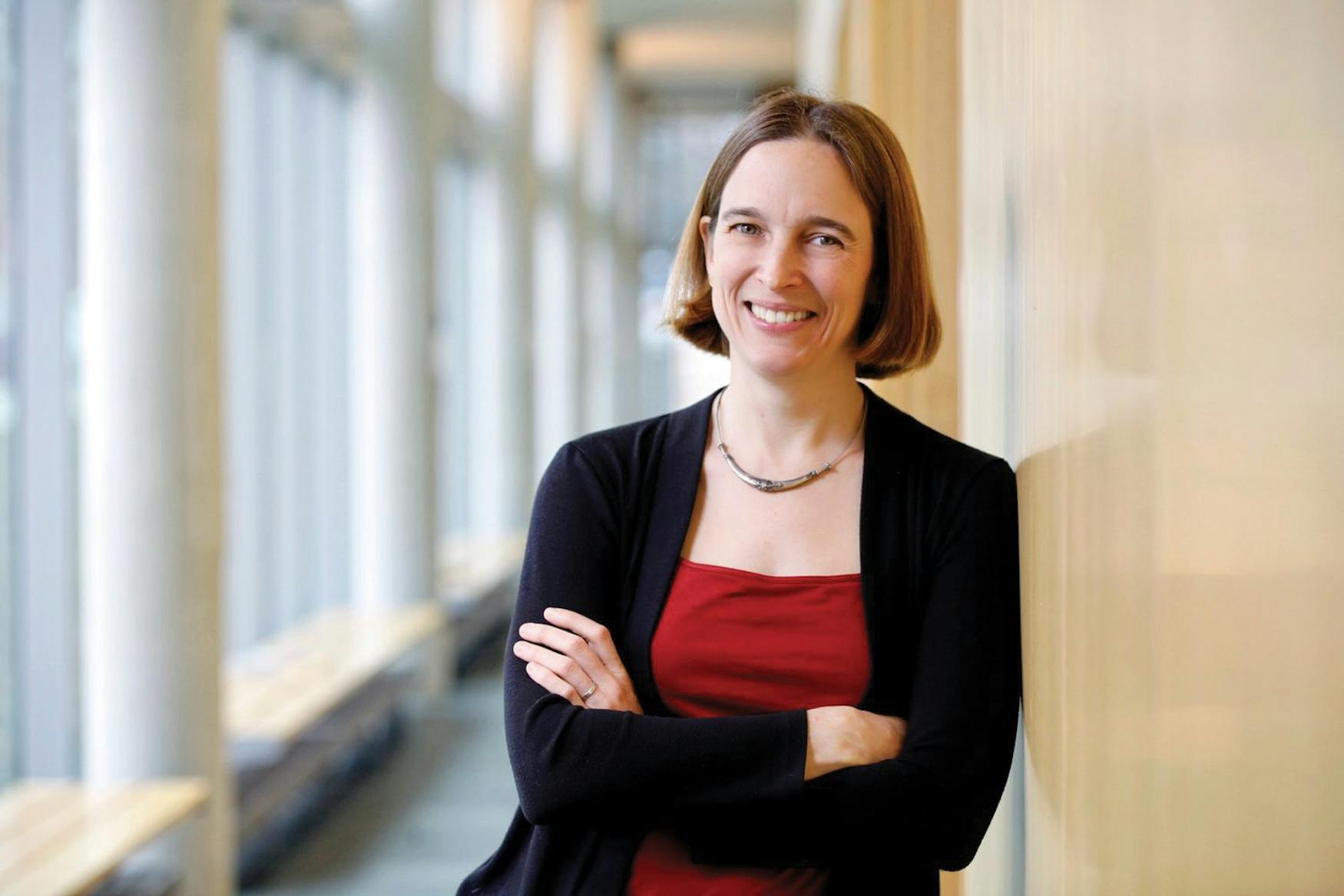New dean of Graduate School of Arts and Sciences begins first semester
Cadge reflected on her plans for GSAS amidst changes in higher education.
This fall marks Professor Wendy Cadge’s first academic year as the University’s dean of the Graduate School of Arts and Sciences. Her service as dean formally began on June 1.
Provost Carol Fierke and Undergraduate Dean of Arts and Sciences Dorothy Hodgson announced Cadge’s appointment in a letter to the Brandeis community on Jan. 28. In the statement, Fierke and Hodgson summarized the process of choosing Cadge and their initial impressions regarding her visions for the role. Their observations included notes on Cadge’s penchant for collaboration with students and outreach in the Brandeis community, as well as her work with nonprofits and the school’s antiracism initiative.
The process of choosing the new dean involved gathering input from students and narrowing down a closed application pool of Brandeis professors. “The role was advertised last winter and it was an internal process, so it was for faculty already here at Brandeis,” Cadge said in an in-person interview with the Justice.
Cadge applied for the position while serving as senior associate dean for Strategic Initiatives in the School of Arts & Sciences, according to her page on the Brandeis Department of Sociology Website. Her term as GSAS dean will be three years in length. As outlined on her website, Cadge’s initiatives as a teacher and mentor include improving spiritual care on a national level and researching contemporary American religion and its permeation into public space.
Cadge told the Justice that this role would be different from any of her past experiences in leadership and required unique preparation. Over the summer, Cadge studied the changing atmosphere of graduate education through data analysis and conversations with colleagues at the GSAS and across the country.
“I did a lot of reading. I talked with all the Directors of Graduate studies in arts and sciences and many of the academic administrators. I worked with the staff to try to get up to speed as quickly as I could and to gather more systematic data about graduate students, how the graduate schools work and what’s happening in the national conversation about graduate education,” Cadge explained in an interview.
During the spring, Cadge conducted a start-stop-continue survey: an assessment in which students provide answers to three questions, including what the institution should implement to improve and identifying current approaches that are and are not working. The process accrued data geared towards understanding what students already like and dislike about the school and what they believe GSAS should do to improve.
To tie past experience to her present role as dean, Cadge said she applies skills learned through teaching, such as forming connections with students and discerning precisely what students are looking to get out of their graduate experience. “I teach and I work [at Brandeis] because I love students and students come first. I always think about and try to make decisions with the students first in mind, appreciating that different students and different programs have different needs and that we do our best work when we work collaboratively,” Cadge said.
Cadge also understands that actively engaging students and Brandeis community members is a concrete way to foster positive change and growth. “When I teach, we do a lot of ‘everybody’s out of their seat and we’re moving around,’” Cadge said, pointing to large white sheets filled with handwritten notes mounted on her office wall in Bernstein Marcus. “We do a lot of collaborative thinking,” which, Cadge said, is one way she approaches her role as the GSAS dean.
The landscape of higher education is changing and Cadge believes the greatest task at hand in her new role, and for the GSAS in general, is setting students up for success in this new climate of graduate education.
Cadge said she believes it is important to consistently consider how GSAS can best serve its students. “We always have to be asking, ‘What’s the value proposition? Why should a student come to [the GSAS]? What can we offer at Brandeis that is unique and different?’”
In deciding how to best guide Brandeis graduate students, Cadge reflected on her own time as a graduate student.
At Princeton, where she received her MA in Sociology in 2000 and PhD in 2002, Cadge rarely saw the dean, John Wilson. His behind-the-scenes work gave students the freedom and space to excel while offering quiet guidance.
“If we are doing our jobs well, we are leading and supporting from behind, and we’re making it possible for students to have the kinds of experiences that enlarge their professional lives and careers,” Cadge said.



Please note All comments are eligible for publication in The Justice.